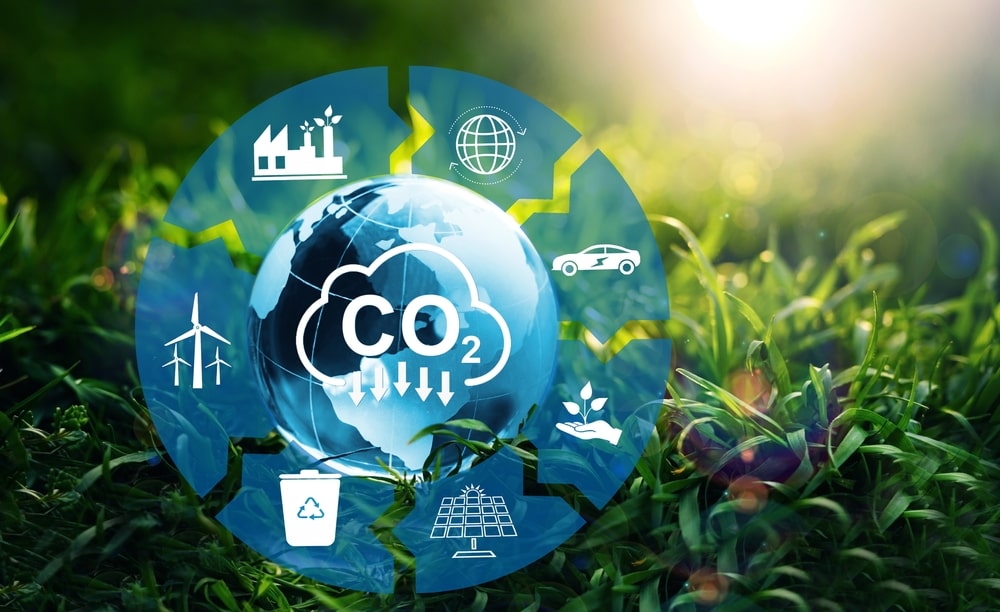Sector - Sustainability
Small business hits carbon neutral

As one of the first equipment hire businesses to announce its carbon neutral status, Astley Hire is encouraging other small businesses to get on the road to net zero.
The company recently revealed it has achieved carbon-neutral status for December 2020 – November 2021 under PAS 2026 framework.
Astley Hire has held the ISO 14001 environmental standard for many years but was inspired to make the big push for carbon neutrality by the UK’s target to become carbon neutral by 2050, starting with a 12-month long project in 2021.
Astley Hire worked with consultancy, Charis Ventures, to form and implement a comprehensive carbon scheme, reducing a potential carbon footprint of 142.08 tons down to a residual value of 48.24 tons, which has been offset via the government approved Carbon Footprint scheme.
Astley Hire’s General Manager, Martin Doran, commented: “We have always been aware of the impact of our business activities on the outside world. I am pleased to have reached this significant milestone of zero-carbon neutrality and be one of the first hire companies in the UK to have achieved this status. Our customers who prioritise their green credentials can benefit greatly from knowing they are hiring equipment from a carbon-neutral provider.”
A number of government initiatives have already been announced around achieving emissions targets, with the most prominent for the construction industry being seen in the ‘Gold Standard’ and the announcement that all contractors bidding for projects worth more than £5M must have a net-zero plan in place, as well as initiatives to bring down the emissions form the public sector estate. It is therefore necessary that even the smallest companies within the supply chain improve their green credentials to be able to gain a footing in the public sector marketplace.
Construction Online spoke to Martin Doran about the company’s journey to net zero and the benefits they are seeing.
Can you tell us more about why Astley Hire wanted to improve their green credentials?
Part of the reason for the push towards green credentials comes from the owners / directors Stephen and Michael Dorricott. They have always been passionate about the environmental impact of the business this was a driving force behind us adopting ISO 14001 over five years ago. Of course, we realise as a business that larger organisations are asking more and more questions about the environmental impacts and sustainability of your business. We thought that we could get ahead of the curve on this it would be a competitive advantage as well as benefiting the environment.
Are you seeing any benefits for the company?
Since we are early in the life cycle of this it is hard to say what the benefits are as at now, although we have anticipated benefits which we hope to see in the future. I think the main immediate benefit is knowing what ever carbon we are generating that it is neutralised, so we are doing our bit for the environment.
Do you think it has been a worthwhile exercise, and will you continue to improve? What are the next steps for the company?
It has been a very worthwhile exercise so far and it is only the start of our journey. While we are still producing carbon, it will be our goal as a business to reduce the amount we produce going forward so our offset is reduced in future years. Our aim is to reduce our residual carbon by a further 10% over the next year. We are also looking at getting our calculations verified by an outside body.
By analysing your carbon output as a business, you can see what is your largest generator and then come up with strategies to improve that area. Some of the areas we have identified will require markets to develop new products that generate less Carbon. We are constantly researching what new technologies are available and may come available in the future. Over the next year we have a five-point action plan to reduce our current emission on areas we know we can affect.
What was the easiest thing to implement?
The energy market is no-one’s friend at the moment, but implementing renewable energy in our business was probable one of the easiest things to do. It does cost more per unit, but it saves the environment about 24 tons of carbon a year for our business that is 17% of our overall emission. It is relatively simple to do and requires no change to business infrastructure or processes.
Was it easy to get staff onboard?
The staff are always very good, with us being a small sized company then they can see why we are doing what we are doing. There is more work to do on this matter and we are about to start with more staff engagement as part of our five-point plan. Like a lot of it this is still a work in progress, but we see staff buy in as a massive advantage.
Do you have any top tips for other small businesses looking to improve green credentials?
There is help available if you look for it.
I attended a two-day training course at Manchester Metropolitan University about carbon reduction in December. It was a really good course and helped me to understand the subject matter more. A lot of people will have the same issues as you simply don’t know how to do it.
I would always recommend education of senior managers as part of the process – the earlier the better.
We also wouldn’t have been about to achieve this without engaging an outside consultant. It helped that our ISO consultant was able offer the PAS2060 calculation as part of their service package. They had done a lot of work with us for our ISO 14001 environmental and they understood us as a business really well, so we had a good working relationship with them.
See it as a marathon and not a sprint.
The government target is for us to be carbon neutral by 2050, there is a long lead time on this, but the reality is it is a must. I would encourage business holders to bear green credentials in mind when making key decisions like equipment investment, vehicles, premises expansion – items that don’t come round that often or will be in use for a long amount of time going forward.
Business processes are short term and relatively simple to change but they don’t always have the biggest impact.
Being carbon-neutral is the first milestone in a long-term effort to reduce the business’ carbon output and the requirement for carbon offset. Astley Hire’s aim for 2022 is to reduce carbon offset by a further 10%, with similar targets for future years.
Over 2022 and beyond, Astley Hire will examine business processes and seek ways to improve key areas such as their vehicle fleet efficiency, fuel for hire equipment, employee commuting, and the digitalisation of processes.
The next stage of Astley Hire’s carbon-neutral journey is to get the PAS 2060 result certified by an external body, with a long-term strategy to target every aspect of the business as technology advances and greener solutions become available.
If you would like to read more stories like this, then please click here
Related Articles
More Sustainability Features
- Why sustainability fails without structural engineers
9 Sep 25
Development firms could benefit from in-depth structural engineering knowledge
- Solar on all new homes must align with 1.5 million homes target
20 Jun 25
The Government have said that solar panels will be included in the FHS, leading to installation on the vast majority of new build homes.
- The renewables revolution in the Scottish Highlands
25 Feb 25
The Highlands are at the heart of a transformative renewables revolution, poised to lead a generational shift in energy production.






